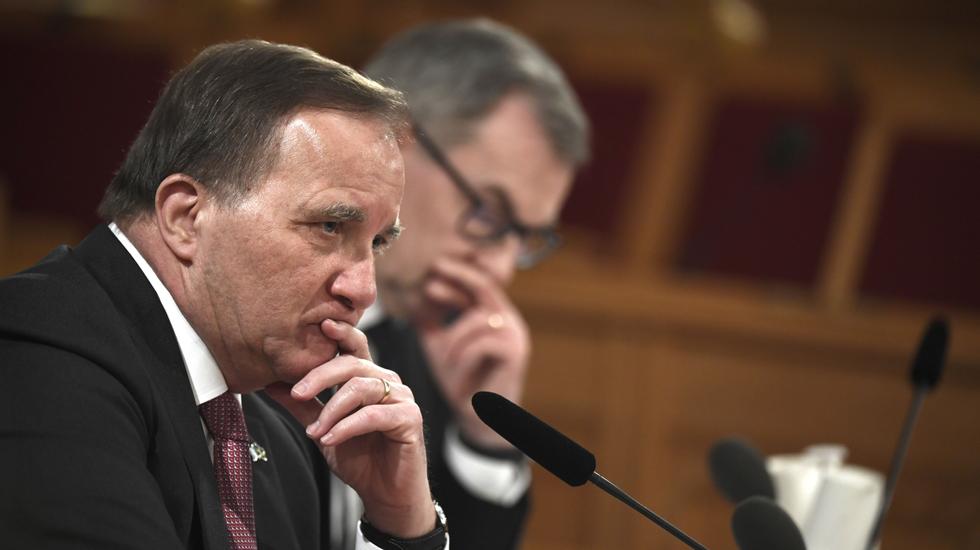On Monday, the prime minister was thoroughly questioned by the Riksdag’s constitutional committee. He emphasized that the Swedish “dominant idea” in what he called the strategic framework for infection control work was to limit the spread of the disease.
The government chooses a direction for how it works. Such a trend should not be expressed through a government decision. Leuven answered questions about why there was no clearly articulated plan for the government.
Controlling
Moderator group leader Tobias Billström thinks this is culpable and believes that the officially approved strategy would have made it easier for the Swedish parliament to follow through and see if the government’s action met its goals.
The prime minister said that the strategy is to discuss the best measures in a given situation and then adopt them.
Knowledge and experience through testing was the guiding principle. Leuven said it wouldn’t have mattered if the strategy had been officially sanctioned.
Reducing the injury
He believed that it was in the nature of things that the goal was to limit contagion as much as possible, even if one did not necessarily set the target.
Leuven was also asked several questions about the role of the Public Health Authority, not least about whether professional expertise has been given a very dominant position.
The Public Health Authority is clearly a competent body with many eminent professionals. For me, of course, we listen to them. The Prime Minister replied, “If I turn it around, it will be a direct service mistake if we don’t listen to what they have to say.”
Non-operating liability
He emphasized that as prime minister, he has administrative responsibility, but that does not imply operational responsibility.
On his special role during the pandemic work, Leuven said he attended about 50 meetings with state ministers in the Crisis Management Unit and that he constantly asked what measures were needed, and whether there were sufficient resources to run the work.

“Organizer. Social media geek. General communicator. Bacon scholar. Proud pop culture trailblazer.”

